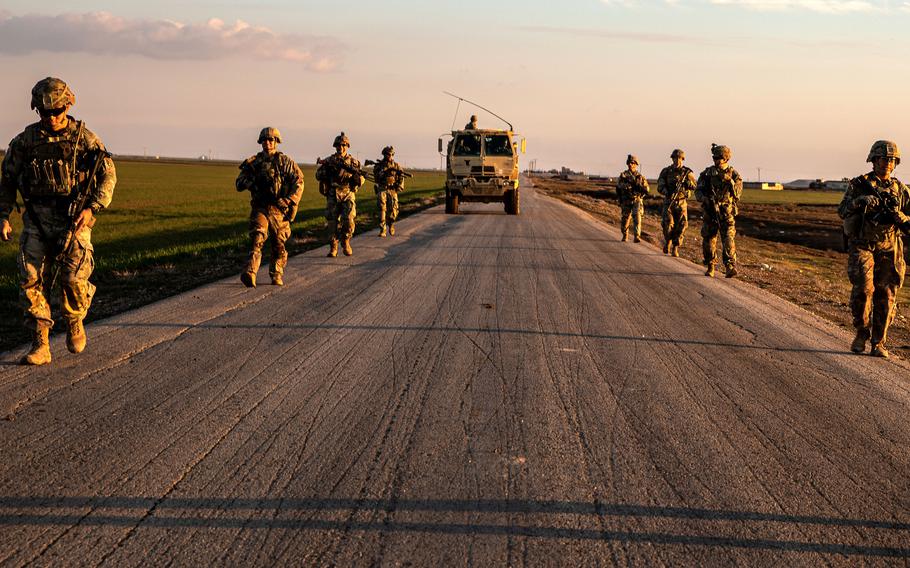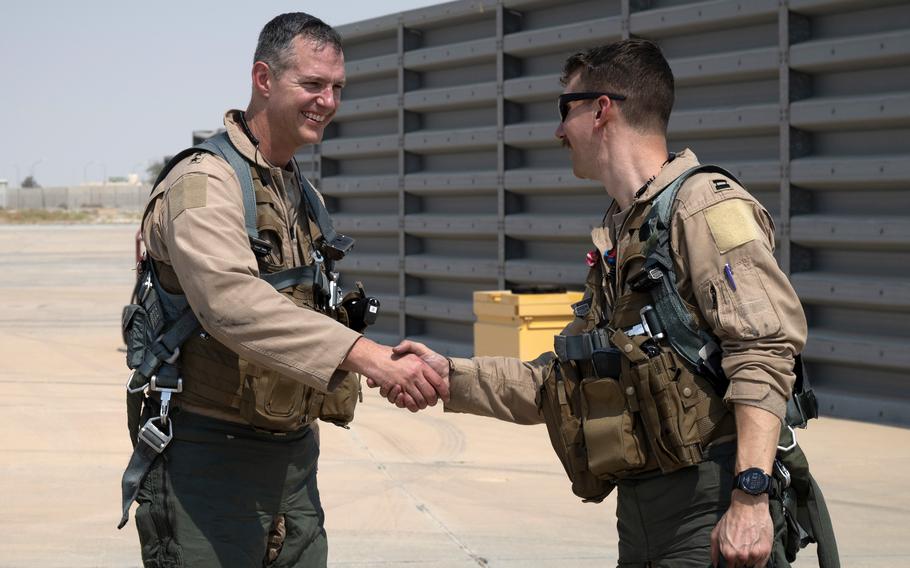
Soldiers of the 37th Infantry Brigade Combat Team patrol in Syria, Feb. 3, 2023. Lt. Gen. Alexus Grynkewich, Air Forces Central commander, said on March 7 that there has been an uptick recently in Russian air activity above U.S. positions in Syria. (Julio Hernandez/U.S. Army)
U.S. troops in Syria are seeing more Russian fighter jets flying over their positions, the Air Force’s top general in the Middle East said.
Russian planes flew over U.S.-controlled airspace in Syria this week, said Lt. Gen. Alexus Grynkewich, commander of Air Forces Central, who in the past has decried Russia’s “troubling behavior” of buzzing over U.S. troops without any warning.
AFCENT confirmed that Grynkewich made the comments, first reported by Aviation Week, during a media roundtable Tuesday at the Air Force Association conference in Aurora, Colo.
“To protect operational security, we can’t release exact numbers of Russian aircraft overflying U.S. and partner positions, but we will try to characterize trends when able,” Lt. Col. Michael Hertzog, an AFCENT spokesman, said in an email late Tuesday.
The proximity of U.S. and Russian forces in Syria has required frequent use of deconfliction phone lines to ensure that the two forces do not inadvertently shoot down each other’s aircraft, military officials have said.

Air Force Lt. Gen. Alexus Grynkewich, Air Forces Central commander, shakes hands with F-16CM pilot Capt. Sean Cahill, 79th Expeditionary Fighter Squadron, after flying a mission together at an undisclosed location in September 2022. (Dalton Williams/U.S. Air Force)
The U.S. has accused Russia in the past of violating agreements about where each side is supposed to be within Syria’s borders.
The U.S. has roughly 900 troops in Syria, according to the Pentagon. These troops, along with contractors, work with Kurdish fighters to battle the Islamic State group.
The U.S. launched 17 missions against ISIS in February, a report by U.S. Central Command said. One raid on Feb. 16 that killed a senior ISIS leader also led to injuries for four U.S. troops and a working dog, CENTCOM said.
Russian troops and affiliated military contractors like the Wagner Group also are in Syria to support the government of Bashar al-Assad.
In 2018, a firefight between U.S. troops and 500 pro-Assad forces led to the deaths of dozens of Russian mercenaries, The New York Times reported then.
Russia’s presence in Syria became “more aggressive” following Moscow’s invasion of Ukraine last year, Grynkewich said at a conference in September.
He attributed that to the personal motivations of some Russian officers.
“Generals who were in charge of certain aspects of the Ukrainian invasion have been sent into Syria as their follow-up assignment because of their failure in Russia, and I believe some of those Russian leaders are trying to rebuild their reputation,” Grynkewich said last year.